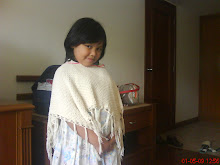Early Life of the Prophet
Muhammad (whose name means "highly praised") was born in Mecca in 570 AD. His father died shortly before his birth, and he lost his mother at the age of six. The young orphan was then raised primarily by his uncle, for whom he worked as a shepherd. At age 9 (some sources say 12), he joined his uncle on a caravan to Syria.
As a young man, Muhammad worked as a camel driver between Syria and Arabia. Soon he established a career managing caravans on behalf of merchants. Through his travel first with his uncle and later in his career, Muhammad came into contact with people of many nationalities and faiths, including Jews, Christians and pagans.
At age 25, Muhammad was employed by Khadija, a wealthy Meccan widow 15 years his senior. The two were married, and by all accounts enjoyed a loving and happy marriage. Early records report that "God comforted him through her, for she made his burden light." Although polygamy was common practice at the time, Muhammad took no other wife than Khadija until her death 24 years later.
Divine Revelation
In his late 30s Muhammad took to regularly visiting a cave in Mount Hira, on the outskirts of Mecca, to seek solitude and contemplation. In 610, at the age of 40, Muhammad returned from one such visit telling his wife he had either gone mad or become a prophet, for he had been visited by an angel. The initially startled Khadija became his first convert.
Muhammad reported that while in a trance-like state, the Angel Gabriel appeared to him and said "Proclaim!" But like Moses, Muhammed was a reluctant prophet. He replied, "I am not a proclaimer." The angel persisted, and the Prophet repeatedly resisted, until the angel finally overwhelmed Muhammad and commanded him:
Proclaim in the name of your Lord who created!
Created man from a clot of blood.
Proclaim: Your Lord is the Most Generous,
Who teaches by the pen;
Teaches man what he knew not. (Qur'an 96:1-3)
After receiving Khadija's support, and additional angelic visits, Muhammad became confident he had indeed been chosen as the messenger of God and began to proclaim as he had been commanded.
Muhammad's message to his countrymen was to convert from pagan polytheism, immorality and materialism, repent from evil and worship Allah, the only true God. He was always careful to clarify his role in God's work - he was only a prophet. He was not an angel, he did not know the mind of God, he did not work miracles. He simply preached what he had received.
In the first three years of his ministry, Muhammad gained only 40 followers. And as his teachings threatened the Meccan way of life, both moral and economic, he and his followers experienced heavy persecution. It first took the form of mockery, but soon turned into open violence. Members of the small movement were stoned, covered in dirt as they prayed, beat with sticks, thrown into prison and refused service by merchants.
Hijira
Persecution continued to increase until Muhammad received some welcome news: he had gained followers in the city of Yathrib, 280 miles north of Mecca. The city was in need of a strong leader, and a delegation from Yathrib proposed that Muhammad take the job. In return, they pledged to worship Allah only, obey Muhammad and defend him and his followers to the death. Allah revealed to Muhammed his approval of this arrangement, and Muhammad made plans to escape to Yathrib.
The leaders in Mecca heard of the planned escape, and attempted to prevent it. But Muhammad and his close friend Abu Bakr managed to make a narrow escape north out of the city, evading a Meccan search party and arriving safely in Yathrib. This event is celebrated by Muslims as the Hijira. The year in which it occurred, 622, is the date at which the Muslim calendar begins. Yathrib was renamed Medinat al-Nabi, "the City of the Prophet," and is now known simply as Medina, "the City."
In Medina, Muhammad proved himself an able politician and statesman as well as a prophet.
Exercising superb statecraft, he welded the five heterogenous and conflicting tribes of the city, three of which were Jewish, into an orderly confederation.... His reputation spread and people began to flock from every part of Arabia to see the man who had wrought this 'miracle.' (Smith, 230).
Battle for Mecca
After establishing himself in Medina and accomplishing the job he had been invited to do, the people of Medina began several years of battle with Muhammad's former home city. In 624, the Muslims won their first battle against the Meccans. As the latter had a much larger army, the former took the victory as a sign that God was on their side. However, a subsequent battle was not victorious, and Muhammad himself was wounded. But in 627, the Meccans attacked Medina, and Medina came out on top. The Prophet was not to lose again.
In 630, Muhammad and his forces marched to Mecca and defeated it. The Prophet rededicated the Ka'ba temple to Allah, witnessed the conversion to Islam of nearly the entire Meccan population, then returned to Medina. Muhammad died in 632, having conquered nearly all of Arabia for Islam.
Spread of Islam
By 634, Islam had taken over the entire Arabian peninsula. Within 100 years of Muhammad's death, it had reached the Atlantic in one direction and borders of China in the other. This success was due in large part to the military and political abilities of Muhammad's successors, the caliphs.
About Me

- sofia
- I'm just a daddy's little girl and enjoying my life. I have a lovely family, great mummy and daddy, kind-hearted siblings, and cute nephews.
Subscribe to:
Post Comments (Atom)



thanks for sharing, sofia. a perfect start to ramadhan! selamat berpuasa! :)
ReplyDelete